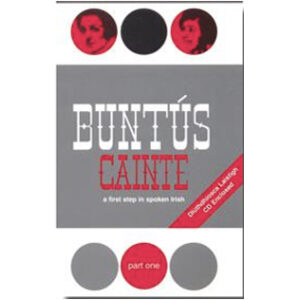Fáilte (Welcome) › Forums › General Discussion (Irish and English) › mar ea
- This topic has 5 replies, 1 voice, and was last updated 6 years, 1 month ago by
Séamas O’Conaill.
-
AuthorPosts
-
February 21, 2018 at 7:32 pm #36989
kyihsin
ParticipantWhat exactly does “mar ea” mean? I have the impression it’s kind of an all-purpose phrase indicating the speaker’s skepticism that an assertion is true. For example, in the story [url=https://fr.wikisource.org/wiki/Description_d’un_parler_irlandais_de_Kerry/Texte]”Inghean an Cheannaidhe”[/url] told by Peig Sayers, there’s the sentence, “Bhí an aimsir caithte agus nuair a bhí an t-árthach chun cuain a fhágaint ní raibh an máta ábalta ar dhul ar bórd, mar bhí sé breóidhte, mar eadh.” The French translation of the last bit that Marie-Louise Sjoestedt provides is “… car il était malade, prétendait-il” i.e. “… because he was sick, he pretended”. In English we might say “he claimed”. But in Irish of course there’s no verb “pretend” or “claim” and no subject “he”; just the expression “mar ea”.
Oddly enough neither Ó Dónaill nor Dinneen’s first edition has a listing for it under either “mar” or “ea”. Dinneen’s second edition does give “mar bh’eadh, mar bhadh eadh – as it were, as if it were so, also as interjection implies doubt and irony” and gives the examples “tá mar bh’eadh – it is, I don’t think!”, “rí mar dheadh – a pretended king”, and “tá mar bh’eadh gabhar ar an mbóthar rómham – there is what seems to be a goat on the road”. Do the native and fluent speakers here agree with all of these? Does anyone spell it “marbh ea” (the modern version of mar bh’eadh), or is it always “mar ea”?
And pronunciation: Sjoestedt transcribes it /mÉ‘r je/ and Dinneen says it is pronounced and often written “mar dheadh”. Does everyone agree with that?
Go raibh maith agaibh as ucht bhur gcuid cabhrach!
February 22, 2018 at 10:53 am #46190Onuvanja
ParticipantI think you’ve pretty well summed up all the possible meanings of “mar ea” or “mar dhea”, i.e. scepticism and pretence. I would have thought the vowel in “dhea” was pronounced as /a/ rather than /e/, but I could be wrong. Can’t remember having come across “mar bh’eadh” or any of the other spellings. Perhaps someone else can expand on the topic?
February 23, 2018 at 10:51 pm #46191josephmcg
ParticipantI hear this phrase used occasionally in English language speech by people aged over 50 here in the West of Ireland. I translate it as ‘ostensibly’ or ‘on the face of it’. I feel like it’s always said with a little shrug.
February 24, 2018 at 10:45 am #46192Labhrás
ParticipantDoes anyone spell it “marbh ea” (the modern version of mar bh’eadh), or is it always “mar ea”?
No, this wouldn’t be the modern version.
There are no combined forms of mar. It is unlike ar, marar, or so.Usual pron. /mar ya/
February 24, 2018 at 11:49 am #46193kyihsin
ParticipantDoes anyone spell it “marbh ea” (the modern version of mar bh’eadh), or is it always “mar ea”?
No, this wouldn’t be the modern version.
There are no combined forms of mar. It is unlike ar, marar, or so.Usual pron. /mar ya/
Good point, I forgot about that. But it wouldn’t be “mar bh’ea” either, would it?
March 10, 2018 at 10:11 pm #46197Séamas O’Conaill
ParticipantI hear ‘mar dhea’ frequently among Irish people who don’t have Irish themselves. Tis amazing how some fragments of the language has survived the conquest of English.
-
AuthorPosts
- You must be logged in to reply to this topic.
